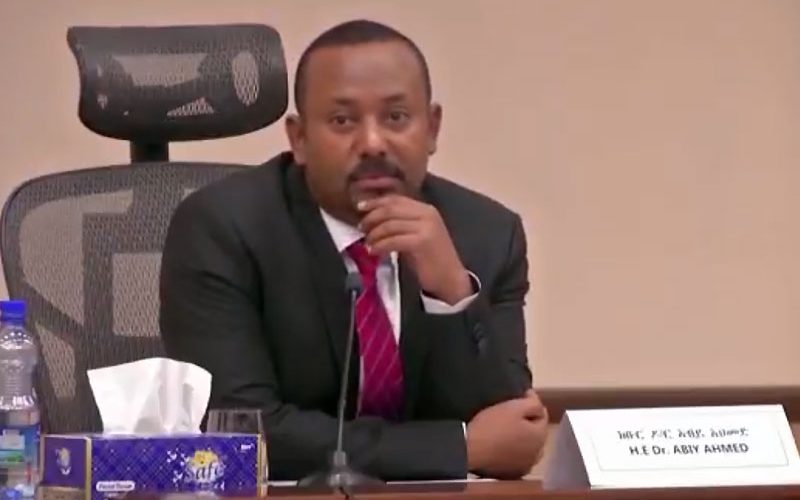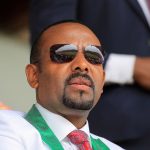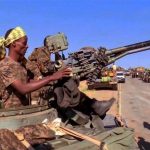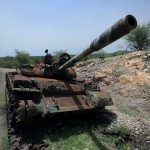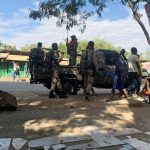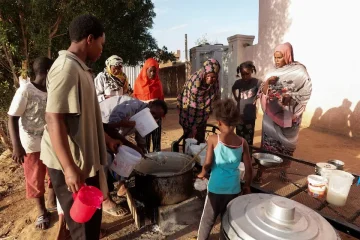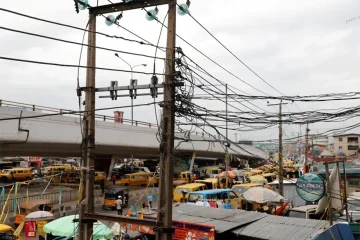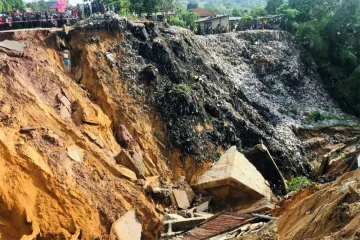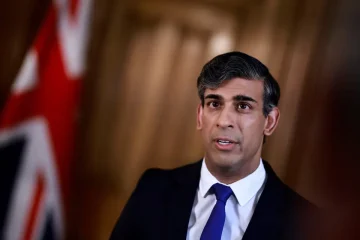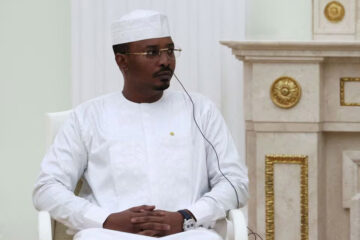ETHIOPIA’S Prime Minister Abiy Ahmed has lauded his troops for their victory over a rebellious northern movement, but the leader of Tigrayan forces said they were still resisting amid fears of a protracted guerrilla conflict.
The nearly month-long war has killed hundreds and probably thousands of people, sent refugees into Sudan, enmeshed Eritrea, and stirred rivalries among Ethiopia’s myriad ethnic groups.
Federal forces captured Tigray’s capital Mekelle at the weekend and declared victory over the Tigray People’s Liberation Front (TPLF), a guerrilla movement-turned-political party that had dominated national government for nearly three decades until 2018.
“Our constitution was attacked but it didn’t take us three years, it took us three weeks,” Abiy told parliament, comparing his offensive with the American Civil War of the 1860s.
“Our army is disciplined and victorious.”
Though the TPLF said Mekelle suffered heavy bombardment, Abiy said his troops had not destroyed the city nor killed a single civilian in the region since starting an offensive in response to an attack on a federal army base on November 4.
Drones were used to watch the TPLF, but federal forces declined to use rockets in Tigray, Abiy said.
“Even though we have better capacity, we won’t use it. We are not the junta,” he said. “We conduct ourselves responsibly.”
‘FIGHTING THE INVADERS’
Though the highland city of 500,000 people eventually fell with little resistance, the TPLF later said it had shot down a plane and retaken one town.
TPLF leader Debretsion Gebremichael, a 57-year-old former radio operator, denied reports that he had fled to South Sudan and said his forces had captured some soldiers from neighbouring Eritrea around Wukro, about 50 km (30 miles) north of Mekelle.
“I’m close to Mekelle in Tigray fighting the invaders,” he told Reuters in a text message.
Claims from all sides are difficult to verify since phone and internet links to Tigray have largely been down and access is restricted.
The TPLF has shelled Asmara airport and accused Eritrea of sending troops to fight with Abiy’s forces. Eritrea’s foreign minister has denied his country has any role.
When he took office in 2018, Abiy pledged to unite Ethiopia’s 115 million people, but ethnic bloodshed had killed hundreds and uprooted hundreds of thousands from their homes even before the latest flare-up.
In Tigray, both sides have spoken of hundreds of fatalities in air strikes and fighting. Diplomats believe the toll is in the thousands.
Abiy’s spokeswoman Billene Seyoum dismissed the TPLF’s comments that fighting was still going on, saying: “Tracking and responding to the many delusions of a disintegrating criminal clique that has become irrelevant is not our focus.”
GUERRILLA WAR?
Debretsion’s defiance, however, raises the spectre of a drawn-out insurgency. The battle-hardened TPLF helped to topple Ethiopia’s Marxist dictatorship in 1991 and knows how to exploit its mountains and borders with Sudan and Eritrea.
“Although it’s not clear how depleted Tigrayan security forces are by the conflict, armed resistance to federal rule may well be backed by much of the regional government and party apparatus, including local militia, as well as by other Tigrayan nationalist elements,” International Crisis Group analyst Will Davison said.
Abiy won the Nobel Peace Prize last year for making peace with Eritrea, whose government also regards the TPLF as a foe.
Abiy, whose parents are from the larger Oromo and Amharic groups, said that when he took office he felt like a “prisoner” and was uncomfortable flying around the nation which operates as a federation of 10 regions run by separate ethnic groups.
In total, there are more than 80 ethnicities in Ethiopia.
During his rule, Tigrayans in senior military positions had been reduced to a quarter from 60% of the top brass, Abiy said, adding: “We must build an army that looks like the country.”
Ethiopia’s military is also a contributor to an African Union peacekeeping force fighting al Qaeda-linked militants in Somalia. But it has disarmed several hundred soldiers there of Tigrayan ethnicity, questioning their loyalty.
Having rebuffed international mediation efforts by Western and African nations, Abiy sent a message to “friends of Ethiopia” in his speech to parliament.
“We may be poor but we are not a country that will negotiate our sovereignty. Threatening Ethiopia for coins will not work,” he said.
Though urging the more than 45,000 refugees in Sudan to return, the prime minister said it was suspicious so many of them were young males and if any had a role in an alleged massacre of non-Tigrayans in Mai Kadra they should face justice. – Thomson Reuters Foundation.

